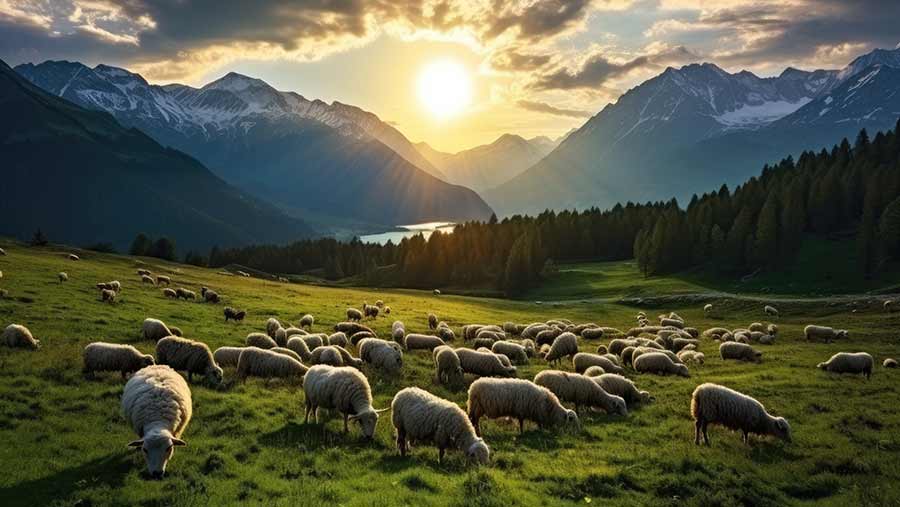Upland farms face 37% funding hole under ELM, warns NFU
 © Distinctive Images/Adobe Stock
© Distinctive Images/Adobe Stock Upland farms in England are facing a serious collapse in their incomes under Defra’s post-Brexit agricultural support schemes, modelling by the NFU has revealed.
Senior NFU officials said ministers repeatedly told farmers in the uplands that they would be recognised for the work they do and be no worse off after Brexit, but this is not borne out by the figures.
The NFU used real data from six farms in the English uplands to compare how they would fare financially under the transition from direct payments to Defra’s Environmental Land Management (ELM) programme.
See also: Defra figures spell looming disaster for the uplands
They found that on average, the upland farming businesses lost 37% of their support payments under the current Sustainable Farming Incentive (SFI) – the first component of ELM – and Countryside Stewardship (CS) options.
Only one of the six case study farms was found to not be any worse off under ELM – this was mainly because it did not claim the BPS.
Government under fire
NFU uplands forum chairman Thomas Binns said the modelling shows Defra’s current ELM scheme offer falls short of providing a viable future for upland businesses.
“The government needs to be held to account. You would not have expected the uplands to be in this situation given when we started the new mantra was public goods for public money,” he added.
“You would have thought the uplands would have had oodles to offer in that space. Yet we are trying to struggle to get to par, never mind any increase… We have started with £1 and we are only left with 70p, and that is not good business.”
Mr Binns said upland farmers were struggling to make up the funding shortfall, as many businesses relied heavily on the BPS payments that are being phased out and not properly replaced under ELM.
Many are also already heavily involved in environmental schemes.
“You pull the BPS away and the viability of the whole operation becomes very questionable,” he added.
Mr Binns fears some upland farmers will choose to “farm their way out of a crisis” by ramping up productivity to make up the deficit, which could leave the environment worse off. Others will seek additional income streams through diversification or by entering into large-scale environmental schemes.
Asked what Defra needed to do reverse the situation, Mr Binns said the simplest solution would be to increase payment rates for upland options under ELM and agri-environment schemes.
Other solutions include further grassland options under the SFI, more flexibility for those in Higher Level Stewardship agreements to stack options under the SFI and bundling together of some options with premiums offered.
Payments parity
Back in May, the NFU successfully lobbied Defra to restore parity on SFI payment rates for managing grassland with low inputs (£151/ha).
But Mr Binns said Defra must “pull a rabbit out of the hat” with its final SFI offer, which is due to be released ahead of Christmas and introduced sometime next year, to ensure upland farm businesses can remain viable.
Last week, the Green Alliance think tank called on the government to reform payment schemes to provide more support for smaller grazing and upland farms.
The latest Defra farm business income figures revealed an average 12% increase from March 2022 to February 2023. However, grazing livestock farms in less-favoured areas had the biggest decline year on year, falling by 41% to £25,400.
A Defra spokesperson said: “Upland farmers play a critical role in our rural communities and natural environment, and there is something on offer for every business to support them to produce food sustainably while protecting nature and enhancing the environment.
“We are continuing to work closely with farmers and landowners as these schemes are rolled out.
“We’ve already increased payment rates under Countryside Stewardship and SFI to make sure that upland farmers are paid the same as lowland farmers for carrying out the same action.”
